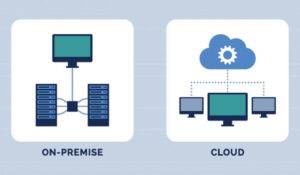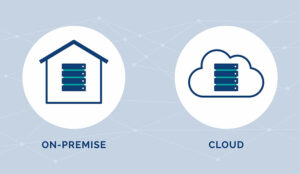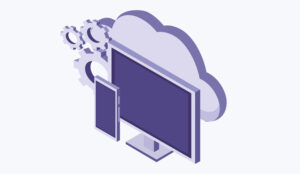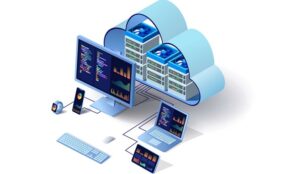There’s been a seismic shift towards companies adopting cloud solutions in the past decade, but not everyone is joining the bandwagon. Call Centre Helper’s 2017 edition of ‘What Contact Centres Are Doing Right Now’ interviewed almost 400 industry professionals and found that over 40% of companies are not considering a move to cloud solutions.
Whilst many readers might be surprised at this finding, there are many reasons why companies want to store data in a privately controlled data centre rather than use a cloud service. And there are small steps that can be taken to gradually ease into full cloud-based solutions. It doesn’t have to be exclusively on-premise or cloud. A hybrid model might be the right stepping stone for many organisations.
Here are four points in the great debate of the on-premises vs. cloud:
1. Greater ROI
Microsoft has done a study on the costs of cloud vs. on-premise and says that an average cloud application delivers 2.1 times more ROI than an on-premise solution. The majority of this cost saving is accounted for by lower initial and ongoing costs and the ability to deliver greater value over time without the cost and disruption traditionally associated with upgrading, expanding, or changing business applications, according to Oracle.
2. Greater Reliability
The Call Centre Helper research shows that almost 40% of contact centre professionals are ‘not sure’ of the reliability of the cloud. However, the cloud is endorsed as delivering a high level of disaster recovery, most commonly 99.99% uptime guarantee, whilst on-premise often doesn’t have any guarantee at all.
Cloud allows the software provider to seamlessly move the application to another location if there is a problem with the hosting platform. Nothing changes from the company’s point of view: log in the same way, software operates in the same way, customer access is the same. It’s as though there hasn’t been any problem.
3. Homeworking
The research also tells us that more than 50% of contact centres have no plans to allow agents to work from home, stemming from concerns over endangering the sense of team spirit, risking business continuity and failing to provide agents with effective support.
However, the flexibility of the cloud has been shown to boost agent retention rates and also improves their work–life balance. Another upside is that homeworking gives access to a wider recruitment pool.
4. Data Risks
Almost 30% of industry professionals are concerned with data security when considering putting sensitive customer data onto a cloud platform. It is critical to maintain data security, and by working closely with the cloud provider, businesses can be assured that there are established and trusted security policies in place to assure against data loss and theft, and strategies in place to deal with business continuity and data recovery. Many software applications don’t need all of the confidential data held by a company and take read-only data into the cloud, reducing any potential risk of data loss.
For those organisations that are tied to strict data contract requirements, a ‘hybrid’ model using a cloud-based application to support your existing on-premise solution might be a more realistic first step. The benefits gained from an application in the cloud using on-premise data could give you the upside of the improved ROI, agent empowerment and reliability, along with secure data.
The march into the cloud continues.
To find out more visit: https://qstory.ai
Author: Robyn Coppell
Published On: 6th Mar 2018 - Last modified: 21st Aug 2023
Read more about - Guest Blogs, QStory



































